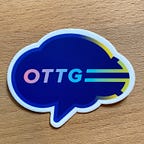Going Deeper to Build One Team
Two and half years ago I shared a simple post about an important cultural framework that helps guide our work at Remind: One Team, Two Goals. Or, as you’re apt to see referenced across many of our Slack channels, #OTTG.
In that post, most of what was described revolved around the Two Goals. First, how we lead with Impact, like any company should, as a way to define clearly the “why” that we all show up to do our important work each day. For Remind, Impact is reflected most clearly through our Vision which is “to give every student an opportunity to succeed.” Our Impact can be measured in multiple ways by the number of students, educators, and parents we support every day through their engaged use of the Remind platform.
In support of Impact lies the second goal, Sustainability. Through our focus on Sustainability we imagine how we might evolve our product development, go-to-market, and operations so that we build a business that can firmly stand on its own. Clearly, Impact and Sustainability co-exist — being able to positively Impact student outcomes in perpetuity can only happen by creating a Sustainable business. These Two Goals of Impact and Sustainability reinforce — rather than pull away from — each other.
But what about One Team? In many ways the easy approach is to describe One Team is “self evident”, that it’s just about collaborating cross-functionally and supporting each other in pursuit of our Two Goals. Similarly, it’s simple to further define One Team by the myriad of management literature and quotes that surround us on the topic of teams. (I will say, I have been known to utter in more than a few meetings a favorite John Wooden quote that captures the spirit of “One Team”: It’s amazing how much can be accomplished if no one cares who gets the credit.)
Without a doubt, a significant part of how we describe and express One Team at Remind comes through the many examples of collaboration that individuals and groups engage in together. We have committed to measure One Team through our two-times a year team engagement survey (TES) that asks important questions around team member engagement and performance, as well as team member sense of belonging that we strive to engender through our efforts to create a diverse, equitable, and inclusive workplace.
At the end of last year we decided to go even deeper with how we invest in One Team. We channeled the Delphic phrase “know thyself”, and we’ve made a companywide commitment to bring strengths based managing and coaching throughout our team. You could say that in order for us to really define One Team, we’re investing to “know thyselves” (all apologies to Socrates, Plato, Aristotle, and the like).
Specifically, we’re going deeper with Gallup’s CliftonStrengths and tapping into Gallup’s strengths-based coaching framework to support managers and individual contributor team members alike. By focusing on strengths-based development we aim to bring a shared language and vocabulary that we’ll weave throughout Remind in a way that will strengthen our One Team. For example, we are excited to see how explicitly talking about talents and strengths will enable a team member in customer success to really see and understand a team member in engineering or operations, and vice versa. Sharing openly our respective talents and strengths (as well as those areas where we may be less naturally talented) builds trust at the team member level through a vulnerability that stems from allowing our team members to see the core elements that define who we are.
As a CEO I am happy to share what Gallup defines as my “dominant” talents and strengths, and I look forward to seeing them reflected alongside the same list of dominant strengths for each of my Remind teammates. Similarly, I’m equally excited to share my “bottom” talents and strengths so people know the elements that are harder for me to naturally express and tap into as a leader. What’s most important is that my colleagues know that I commit to lean into my top talents and strengths in my efforts to serve fellow “Reminders” as well as in my efforts to serve our users, customers, partners, and shareholders.
For me, 2021 will be a year of growth that emanates from the strengths-focused conversations I will have with my teammates at Remind. These conversations will center around how we can continuously tap into — and elevate — our collective talents and strengths to advance our work in support of education. It’s exciting to imagine how our strengths-based development efforts will help Remind improve on the already deep collaboration ethos that serves as the foundation for our One Team, and how this companywide commitment will support a never ending effort to make our One Team stronger and even more resilient.
